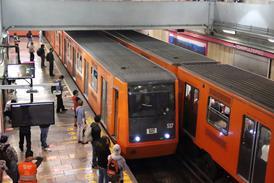Close menu
- Home
-
News
- Back to parent navigation item
- News
- Traction & Rolling Stock
- Passenger
- High Speed
- Freight
- Infrastructure
- Policy
- Technology
- Ticketing
- Business
- Research, Training & Skills
- Accessibility & inclusion
- People
- Urban rail news
- Suburban and commuter rail
- Metro
- Light rail and tram
- Monorail and peoplemover
- Regions
- InnoTrans
- In depth
- Events
- Data
- Maps
- Tenders & Jobs
- Sponsored content
- Insights
DB Cargo plans to cut 893 jobs in face of ‘unprecedented’ market changes
By Railway Gazette International18 October 2016

UK: Deutsche Bahn subsidiary DB Cargo UK has announced changes to its business model and proposals to eliminate 893 roles in response to what it says are ‘rapid and unprecedented changes’ in the freight market.
Already have an account? LOG IN
To continue…
You’ve reached your limit of content for the month
Get enhanced access to Railway Gazette news and weekly newsletters.
Site powered by Webvision Cloud














